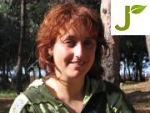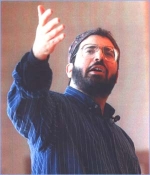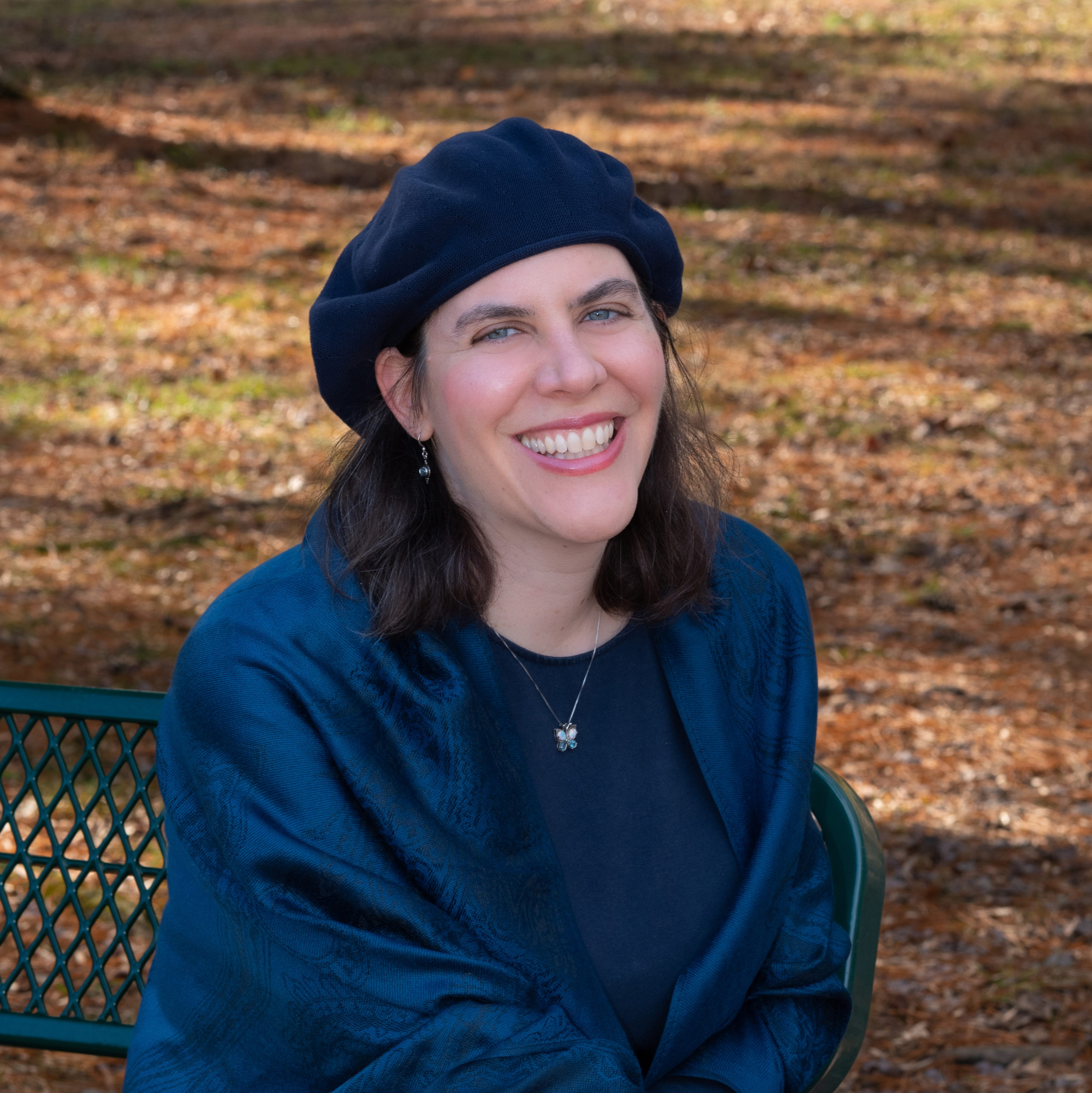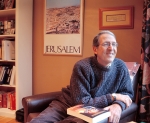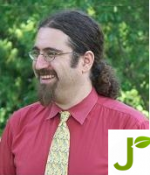Holidays Subscribe
Blogs
Earth Etude for 13 Elul
Swimming on Our Backs by Rabbi Judy Kummer All week long, a challenge with a family member plagued me. I stewed over it, allowed it to twist my kishkes into tight knots and my body into a ship tossing on waves of wakefulness in nighttime. I even watched it tug at my mind and heart during long lake swims thru otherwise placid waters. Tears and fresh water mixed, a potent cocktail of sadness. And then, during one swim at dusk, as I flipped over onto my back to reach into back crawl, I looked up and saw the most glorious sunset ...
Earth Etude for 9 Elul
Return to the Land of Your Soul by Adina Allen In Genesis we read that God places Adam in the garden “to serve it and to guard it.” In the rabbinic imagination there are many possibilities for what this description could mean. It could mean that the first human was given the practical task of keeping the garden watered so that plants would grow, or perhaps of protecting the vegetation of the garden by keeping the animals out of it. However I think there may be another, more thrilling motive to explore in imagining why this task is the task ...
“Esh, Esh Medura” (Fire, Fire, Bonfire)
by Einat Kramer, Director – Teva Ivri One of the most “Israeli” phenomena that I know is the bonfires of Lag B’Omer. Immediately after Pesach, even before the clean spring scent fades in the heat of the summer, the streets of our country are filled with children looking for firewood. They are everywhere; in forests, building sites, and among the garbage cans, they collect wood (or anything resembling wood), hauling it off in “borrowed” supermarket carts to their secret hiding place and guarding it fiercely until ...
Hidden Inside Names
I love how Purim teaches that our names carry depth and meaning. Take Esther our queen and star. Her very name in Persian means star. In Hebrew, her name means hidden and sure enough she not only hides her Jewish identity, but like a serious secret agent, also her intentions. Did you remember that she is actually given two names? “He brought up Hadassah, who is also Esther, his uncle’s daughter…” (Megillah Esther, 2:7). The name Hadassah, Hebrew for myrtle, brings to mind the lovely myrtle tree, with smallish star shaped flowers and ...
Mysticism and Making a Difference: Tu b’Shevat in Silver Spring
My local community group, the Kayamut Silver Spring Sustainability Circle, held our Tu b'Shevat Seder on February 7. It was the first time in a long time that I hosted a Tu b'Shevat Seder that was actually on Tu b'Shevat. So I wanted to make it special. Instead of being a mock seder or a model seder, it was a real seder and an opportunity to experience Tu b'Shevat for itself. I know that Tu b'Shevat has mystical meaning in addition to the more modern, environmental meaning we've given to it. For this seder, I wanted to blend a little of ...
Two Day Organic Lollipop Sale for Purim!
Purim is right around the corner... Will yours be sustainable? Purim falls this year on Thursday, March 8. Share your environmental commitment with your community by ordering Kosher Organic Lollipops for Purim! Now for two days only (February 23 and February 24), get up to 25% off our usual low prices, in our pre-Purim sale! (Just $6.00 for 30 lollipops, $9.00 for 50 lollipops or $15.00 for 100 lollipops. Only while supplies last! Order today.) ...
The Owls of Shevat
Dear Friends, Can you hear the owls of Shevat calling? They are beckoning us to find ways to bring our Jewish communities outside. I’d like to share a simple program that gets our community of different aged folks bundled up and joining a night hike filled with owl calls, wind song, star gazing, storytelling and fair-trade organic hot chocolate. Here’s what we do. We gather when the Shevat moon is waning, on a Saturday night post Tu B’Shevat. Peak owl listening time may be 4am, but we just ramble around after dinner, wide open and trusting ...
Equity or the Flood: Two Visions of Justice
It is now seven weeks to Passover and the Passover foods are already for sale in my local supermarket. My family is already planning when to do our shopping and whom to invite to the seder. Like many Jewish families, we put a lot of time and preparations into this holiday because we want to make it special and different from the rest of the year as was done when we were children. But our preparations are not only about shopping, cooking, invites and the changeover of dishes. Every year, we spend at least a little time considering what we ...
Tu B’Shevat Saplings
Dear Friends, Our cliffhanger (see part 1 here ) left us with the Tree of Life and the Tree of Knowledge firmly planted not within Tu B’Shevat, but within the middle of Mi Chamocha our blessing-song for redemption. Mi Chamocha is invoked in every prayer service directly after the Shema. We’ll begin by trying to make sense of this very old word, redemption, and then offer some ideas why Reb Elimelech of Grodzisk (d. 1892) might have placed his wisdom of the two trees there. Ready to wade in the water? As we get our toes wet, let’s first ...
Last Day to Order Free Haggadot
Good Chodesh! Today is Rosh Chodesh Shevat; according to Beit Shammai, THIS is the new year of the trees! In any case, we wish you a good and green new month. Tu b'Shevat is in just two weeks, on Tuesday-Wednesday February 7-8! Today is the final deadline for orders of free haggadot this year. You can order up to 25 Haggadot absolutely free by posting your request on our facebook page. Please post the number of haggadot you are requesting, your location, and the community where the materials will be ...
Tu B’Shevat Seeds
Dear friends, The origins of this post began over a year ago when I came across a quote that looked to me like Rabbi Heschel challenging Martin Buber’s masterpiece, I and Thou. Unbelievable, right? Like two superheroes fighting. I was compelled to explore deeper. Here’s what Rabbi Heschel said: “…I am not ready to accept the ancient concept of prayer as dialogue. Who are we to enter a dialogue with God?” He then declares that he is only an “it” immersed within the all that is God and can not be an ‘I’. ...
Tu B’Shvat Fruits — Meaningful Foods!
It is a widespread custom on Tu B’Shvat to eat of the seven species – five fruits and two grains – associated with the Land of Israel. The Land of Israel is described in Deut 8:7-10 in terms of the resources that it offers, “For the Lord your God is bringing you into a good land, a land with streams and springs and fountains issuing from plain and hill; a land of wheat and barley, of vines, figs and pomegranates, a land of olive oil and honey; a land where you may eat food without stint, where you will lack nothing; a land whose rocks are ...
Feb 6: COEJL’s declaration signing ceremony
The Coalition on the Environment and Jewish Life (COEJL) invites you to the official signing ceremony of the “Jewish Environmental and Energy Imperative” declaration, part of its Jewish Energy Covenant Campaign. Two days before the Jewish celebration of Tu B’shvat, the New Year for trees, leaders of the Jewish community will set the community-wide goal of reducing greenhouse gas emissions 14% by 2014. Who: On behalf of a broad spectrum of national Jewish leaders, Rabbi Steve Gutow, president and CEO, Jewish Council for Public ...
Year of Jewish Learning on the Environment
Core teachings on 18 topics linking Torah and the environment were released between Tu b'Shevat 5772 and Tu b'Shevat 5773 as part of Jewcology's Year of Jewish Learning on the Environment, in partnership with Canfei Nesharim and a host of other organizations who shared materials across the Jewish community. The materials were shared at least 145 times on the web, in at least 99 social media postings, and reached over 51,000 people during the course of the year, as part of a Year of Jewish Learning on the Environment. The materials comprise the most comprehensive set of ...
There’s Light.
We love this time of year. The opportunity to share special moments with family, lighting candles, eating latkes, and sharing special community celebrations. As we come together to celebrate happy moments, Chanukah is a great time to share Torah learning and to remember to be mindful of our energy actions. Chanukah reminds us that even when things may seem dark, there's light. To share the light this year, Canfei Nesharim's website features the following resources: • The Miracle of the Vessels, a Torah teaching to learn with ...
The Festival of Lights: The Spiritual Dimension of Energy
Oh, Lord, my God, You are very great; You are clothed in glory and majesty, Wrapped in a robe of light; You spread the heavens like a tent cloth. (Psalm 104:2) Hanukkah which means “(re)dedication” has also been called the “Festival of Lights” at least since the 1st Century CE as the earliest reference to this name is found in the historian Josephus: And from that time [the purification of the Temple by the Maccabees] to the present time we celebrate this festival, and call it Lights. I suppose the reason was, ...
AS I SEE IT: Ways to green the upcoming holidays
AS I SEE IT: Ways to green the upcoming holidays Originally posted in in the Princeton (NJ) Packet (http://bit.ly/sy6DlG) By Rabbi Dov Peretz Elkins Dr. Dov Peretz Elkins is rabbi emeritus of The Jewish Center of Princeton and a member of Sustainable Princeton (www.SustainablePrinceton.org). His most recent book is “Simple Actions for Jews to Help Green the Planet", which can be purchased at http://bit.ly/uoUGDx. Why is a rabbi writing about Christmas? Hanukkah, sure . . . but Christmas! Answer: ...
The apples are finished.
Each year, before Rosh Hashanah, my family goes apple picking. It's a special tradition for each of us. Most of the other families are here to pick a few apples to be dipped in honey. Not us! As my husband likes to say, "we're hard core." When we get to the farm stand, we're here to pick apples. Maybe you’ve been there: You stand in between the trees that seem to go on and on forever. The apples beckon to you. After only 30 minutes, you probably have enough for Rosh Hashanah. But you’ve only just arrived! Once upon a time, we had to stop ourselves around ...
Isaiah’s Fast: This Yom Kippur, Volunteer, Donate & Mobilize
Yom Kippur, the ‘holiest’ day of the Jewish year. Millions of Jews worldwide get dressed up in white or their best attire and sit together in synagogue, hungry, lamenting all the bad things we have done as a community of flawed individuals. When the average person is asked about Yom Kippur, fasting is first on their mind. Fasting has become a central tenet of Yom Kippur practice, but what is a fast and why do we do it? Three of the most common modern arguments for fasting include: Through the act of fasting we cleanse our bodiy and soul; we keep ...
Teva Ivri – Shana Tova
Teva Ivri - Jewish Nature – social-environmental regeneration in Israel "After the Holydays, all will be renewed Regular weekdays will return, renewed, Air, soil, rain and fire, You too, you too Will be renewed". (Naomi Shemer) "After the Holydays, all will be renewed" – thus tells us the late Naomi Shemer, one of Israel's leading songwriters, and indeed the season of the High Holydays creates a vivid sense of a "transition period" leading to change and renewal. Rosh Hashanah, the ...


